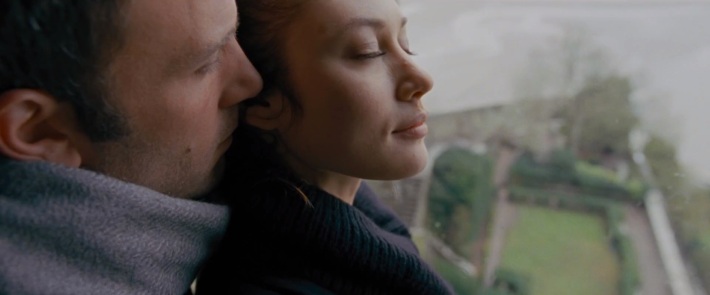This review contains spoilers, read at own discretion. 
As I start this review I am shocked to find that I have never before reviewed a Fincher film. Given that I consider Fincher one of the most talented contemporary directors and rank The Social Network as one of my all-time favourite films I feel that it’s high time to rectify this with a look at Fincher’s newest film, Gone Girl. After the horrific flop that was The Girl with the Dragon Tattoo Fincher had a lot of ground to make up in Gone Girl. Fortunately he delivers a film with
effortless style and punch.
There’s a kind of formulaic Fincher style that has emerged at this point, twisted scenarios, knife-sharp dialogue and a thumping, buzzing Reznor & Ross soundtrack. Gone Girl is all of these things, with the script adapted from the book by Gillian Flynn herself. Personally, I had not read the book before settling into my cinema seat. A fact which means that, like Fight Club before it, the film revealed itself to me in a totally different way to those already in the know. The film is like a dissertation on the unreliable narrator and, more specifically, the role of the narrator or creator within their own work. Through the whole film we only see as much of the truth as serves the story, there’s no real conclusion, no big reveal and resolution. In the murder investigation covered on rolling news what emerges is a different story, shrouded in a totally different set of half-truths and omissions. Any true knowledge lies inside the head of the eponymous Girl (Rosamund Pike, walking the line between enigmatic and crazed) as Ben Affleck states in the opening and closing voiceover of the film. Gone Girl has this longing futility running through it, the attempts of human beings to understand each other within some natural order. Attempts that cannot help but fail, so long as people are self-contained individuals.
Affleck is equally impenetrable as the accused-murderer cum victim of a psychotic fraud yet you’re never quite sure if this is what he’s going for or not. I’ve found that Ben Affleck’s recent roles seemed to call for a certain kind of strong, silent awkwardness that Affleck is fantastic at but I can’t help but feel that his range may not stretch to encompass many other things. Rosamund Pike however gives a virtuoso performance as Amy, imbuing the film with an uneasy atmosphere despite only really appearing in the second half. Her absence is palpable and unsettling as we catch glimpses of her through memories and the stories she’s told about herself. She casts herself as the infinitely mouldable “cool girl”, a personality that exists only as a foil to their man, the fictional and perfect girl the man always imagined. The supporting cast is solid but the breakout performance comes from Carrie Coon as Affleck’s twin sister Margo. As the voice of sanity caught up in the web of a cheating husband and twisted wife she acts as the viewer’s way in, torn between sympathy and fear, never quite knowing who’s right or wrong and wanting to piece it together.
Despite the slick thriller-esque pace and style of Gone Girl Fincher never quite lets go of the opportunity to make this film about love. It’s a depressing, cynical look on the traditional “loving despite faults”. By the end of Gone Girl Amy proves herself as the ultimate “cool girl”, she’s played her part so well that even as she frames her husband for murder, even as she tortures him and makes his life hell she’s still fascinating. He’s still in love with her, despite everything saying he ought not to be.
- Entertainment: 4/5
- Artistic: 5/5
- Intellectual: 3/5
